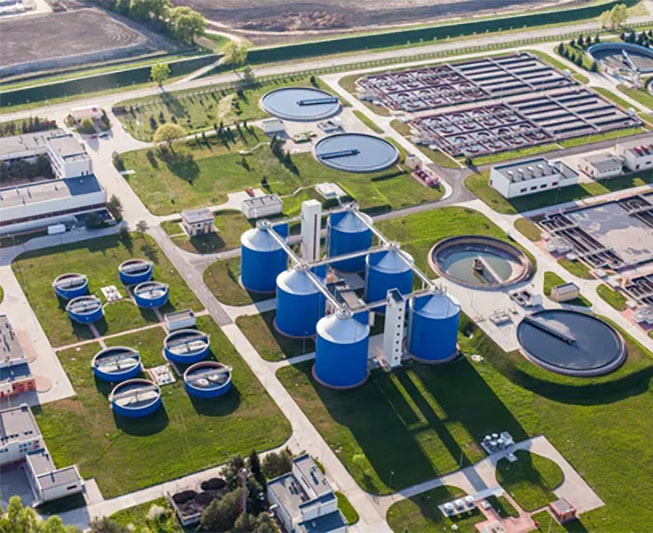- krofta@kroftaengineering.com
- Durga Bhavan A-68, FIEE Complex, Okhla Industrial Area Phase – II, N.D – 110 020
Dairy
How can we help
- Krofta can supply complete ETPs with anaerobic systems to generate bio-gas
- Krofta can supply bio-gas generation systems for dairy farmers
- We can supply DAF systems for primary treatment to remove fats, oils and grease as well as sludge de-watering screw presses
DAIRY INDUSTRY
An Effluent Treatment Plant (ETP) is crucial in the dairy industry to address the environmental concerns associated with the disposal of wastewater generated during various processes involved in milk and dairy product production. Dairy industry wastewater, also known as dairy effluent, contains a mixture of organic and inorganic pollutants, which if not properly treated, can have negative impacts on the environment and public health. Here's why an ETP is needed in the dairy industry:
- Environmental Regulations: Regulatory authorities impose strict regulations on industries, including the dairy industry, to ensure that wastewater discharges do not harm the environment, nearby water bodies, or soil quality. An ETP helps the dairy industry comply with these regulations by treating the wastewater before it is released.

- Pollutant Removal: Dairy effluent can contain a range of pollutants, including organic matter (from milk, cleaning agents, etc.), nutrients (such as nitrogen and phosphorus), fats, oils, and greases. These pollutants can deplete oxygen levels in water bodies, leading to aquatic ecosystem damage. An ETP removes or reduces these pollutants to prevent water pollution.
- Preventing Odor and Nuisance: Untreated dairy wastewater can emit foul odors due to the presence of organic compounds. This can create a nuisance for nearby communities and impact the quality of life. Proper treatment through an ETP helps in reducing odor emissions.
- Protection of Water Bodies: Direct discharge of untreated dairy effluent into water bodies can lead to eutrophication, a process in which excessive nutrients promote the growth of algae and other aquatic plants. This can disrupt the aquatic ecosystem and harm aquatic life. Treating the effluent before discharge minimizes this risk.
- Resource Conservation: In addition to polluting water bodies, untreated dairy effluent can contaminate soil and affect its fertility. Treating the wastewater can help in conserving the quality of agricultural lands.
- Public Health Concerns: Dairy effluent may contain pathogens that can pose risks to human health if they enter water sources used for drinking, irrigation, or recreational purposes. Proper treatment of effluent minimizes the potential for disease transmission.
- Corporate Social Responsibility (CSR): Implementing an ETP demonstrates the dairy industry's commitment to environmental sustainability and responsible business practices. It enhances the industry's reputation and helps build trust with stakeholders.
- Long-Term Viability: Ensuring that the dairy industry operates in an environmentally responsible manner is essential for its long-term viability. Compliance with environmental regulations and sustainable practices can prevent legal issues, fines, and potential shutdowns due to non-compliance.

